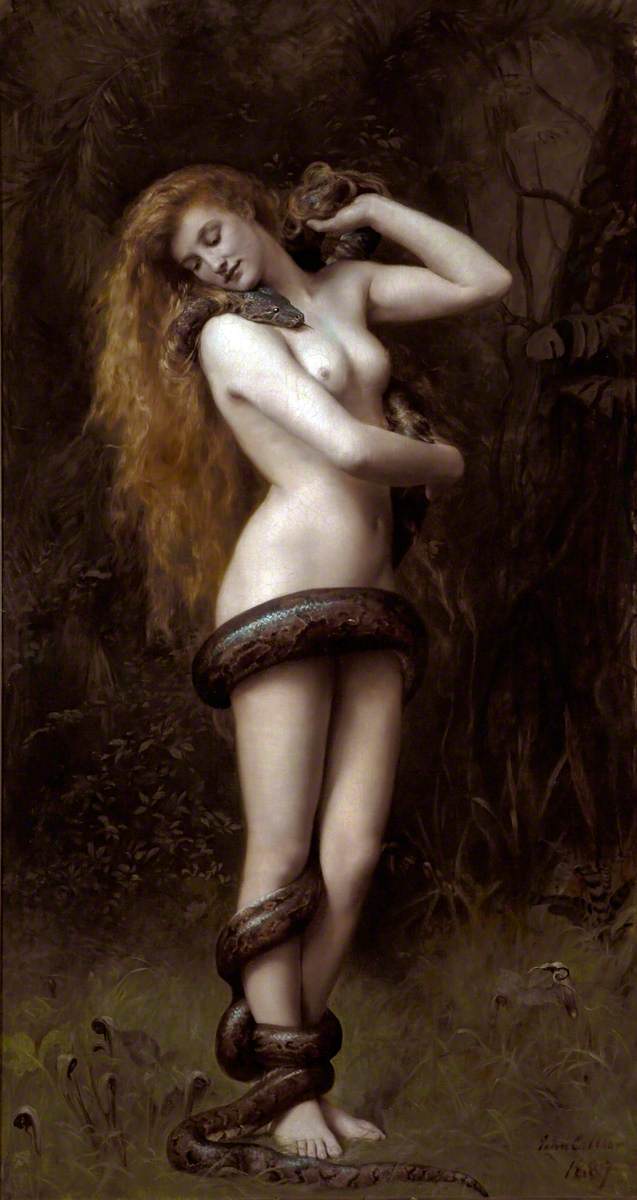Difference between revisions of "Template:Occult.live:Today's featured article"
Occultwiki (talk | contribs) |
Occultwiki (talk | contribs) |
||
| Line 1: | Line 1: | ||
[[File: | [[File:Lilith Painting.jpg|200px|left]] | ||
'''[[ | '''[[Lilith]]''' is a female figure in Mesopotamian and [[Judaism|Judaic]] mythology, theorized to be the first wife of Adam or a primordial [[demon]]. She is thought to be mentioned in the [[Bible|Biblical]] Book of Isaiah, and in Late Antiquity in Mandaean mythology and Jewish mythology sources from 500 CE onward. Lilith appears in various concepts and localities that give partial descriptions of her. She is mentioned in the Babylonian Talmud (Eruvin 100b, Niddah 24b, Shabbat 151b, Baba Bathra 73a), in the ''Book of Adam and Eve'' as Adam's first wife, and in the [[Zohar]] as "a hot fiery female who first cohabited with man." | ||
Interpretations of Lilith found in later Jewish materials are plentiful, but little information has survived relating to the Sumerian, Akkadian, Assyrian and Babylonian view of this class of demons. Many traditional rabbinic authorities, including Maimonides and Menachem Meiri, reject the existence of Lilith. | |||
'''([[ | '''([[Lilith|Full Article...]])''' | ||
Revision as of 21:10, 12 August 2025
Lilith is a female figure in Mesopotamian and Judaic mythology, theorized to be the first wife of Adam or a primordial demon. She is thought to be mentioned in the Biblical Book of Isaiah, and in Late Antiquity in Mandaean mythology and Jewish mythology sources from 500 CE onward. Lilith appears in various concepts and localities that give partial descriptions of her. She is mentioned in the Babylonian Talmud (Eruvin 100b, Niddah 24b, Shabbat 151b, Baba Bathra 73a), in the Book of Adam and Eve as Adam's first wife, and in the Zohar as "a hot fiery female who first cohabited with man."
Interpretations of Lilith found in later Jewish materials are plentiful, but little information has survived relating to the Sumerian, Akkadian, Assyrian and Babylonian view of this class of demons. Many traditional rabbinic authorities, including Maimonides and Menachem Meiri, reject the existence of Lilith.
